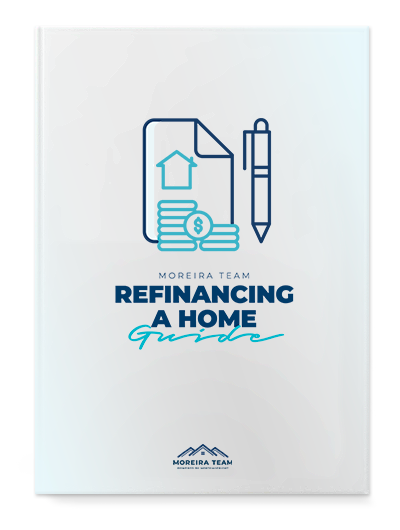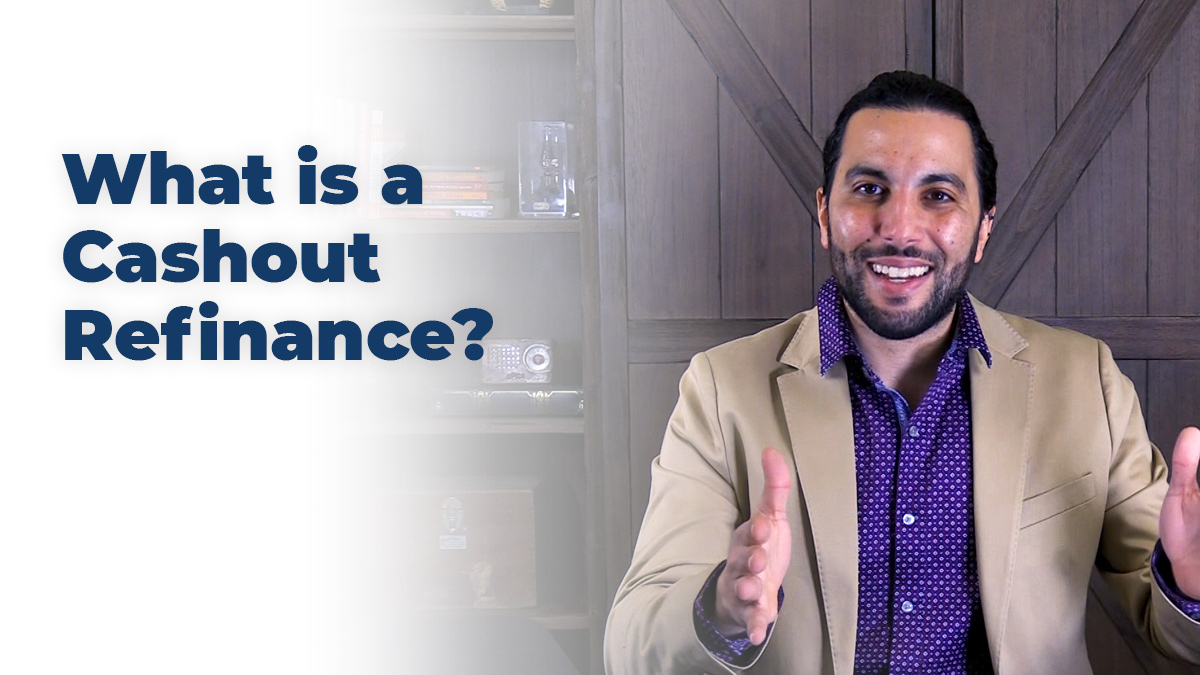In this article
Cash-out refinance is something you can use to simultaneously refinance your mortgage and access any home equity that you have. Using a cash-out refinance lets you have a loan bigger than what you already owe for your home. Your new loan will pay off any old loan you have while keeping the extra cash that you didn’t need for paying off your old loan. Any lump sum that you keep would be your ‘cash out’, which you can spend on any various financial needs in your life right now.

What is a cash-out refinance?
Cash-out refinance is something you can use to simultaneously refinance your mortgage and access any home equity that you have. Using a cash-out refinance lets you have a loan bigger than what you already owe for your home. Your new loan will pay off any old loan you have while keeping the extra cash that you didn’t need for paying off your old loan. Any lump sum that you keep would be your ‘cash out’, which you can spend on any various financial needs in your life right now.
Is a cash-out refinance a good idea?
A cash-out refinance loan is a type of mortgage that allows homeowners to tap into their home’s equity and borrow more than their existing mortgage balance. The difference is what you will receive in cash. People typically apply for a cash-out refinance loan for several reasons:
Debt Consolidation: One common use is to consolidate high-interest debt, such as credit card debt or personal loans, into a single, lower-interest mortgage. This can make managing your finances more straightforward and potentially reduce your overall interest payments.
Lowering Monthly Payments: A cash-out refinance can be used to obtain a lower interest rate and reduce monthly mortgage payments.
Home Improvement: Many homeowners use cash-out refinance loans to fund home renovations or improvements. This can increase the value of your home and improve your living conditions.
Education Expenses: Some people use the cash-out proceeds to cover education expenses for themselves or their children, as mortgage rates tend to be lower than student loan interest rates.
Investment Opportunities: Investors may use cash-out refinancing to access funds for investment opportunities, such as purchasing additional properties, stocks, or starting a business.
Emergency Expenses: In times of financial hardship or unexpected expenses, homeowners may turn to a cash-out refinance to access cash quickly.
Retirement Planning: Some individuals use a cash-out refinance to help fund their retirement or improve their financial situation as they approach retirement.
Tax Benefits: Mortgage interest can be tax-deductible, while other forms of debt interest, like credit card interest, are not. By consolidating higher-interest debt into a mortgage, you may gain a tax advantage.
How does a cash-out refinance mortgage work?
A cash-out refinance operates by paying off your current home loan with a newer, bigger mortgage loan. The money that remains after your original mortgage is paid off will get paid to you as a check when the closing happens. This part is the actual ‘cash-out’ component.
Here’s one example of cash-out refinancing at work:
Consider a home value of $350,000
The current mortgage balance is $250,000
The refinanced loan balance is $280,000
The closing cash-out, minus closing costs, is $30,000
In this instance, the new loan must initially be applied towards paying off the current mortgage. The rest of the loan amount, which is $30,000 winds up being the cash-out sum you get.
How do you qualify for a cash-out refinance?
Qualifying for a cash-out refinance, like any other type of mortgage or home loan, depends on several factors. Lenders have specific criteria that borrowers must meet to be eligible for a cash-out refinance. Here are some of the key factors that typically influence eligibility:
Equity in Your Home: To qualify for a cash-out refinance, you generally need to have sufficient equity in your home. Typically, a minimum amount of equity, often around 20% or more of your home’s appraised value.
Credit Score: Your credit score is an important factor in determining whether you qualify for a cash-out refinance and what interest rate you’ll be offered. Borrowers with higher credit scores get the best deal, as it indicates a lower risk of default. The minimum credit score required can vary but is typically around 620 or higher.
Debt-to-Income Ratio (DTI): Your debt-to-income ratio, which is the percentage of your monthly income that goes toward paying debts, including your mortgage. DTI of 45% or lower is ideal, although some higher ratios under certain circumstances are approved.
Income and Employment: You will need to demonstrate a stable source of income to show that you can afford the new loan. Recent pay stubs, tax returns, and employment verification are required.
Loan-to-Value (LTV) Ratio: The LTV ratio compares the amount you want to borrow with the appraised value of your home. LTV ratio for cash-out refinances is 80% to minimize their risk.
Mortgage Payment History: A good payment history on your existing mortgage is essential. Mortgage payment history will be examined to assess your creditworthiness.
Property Appraisal: Your home will need to be appraised to determine its current value. The appraisal can affect the amount you can cash out and the terms of the new loan.

5 Simple Steps for Refinancing Your Home
If you are planning to refinance this is a must read guide. It will walk you step-by-step through the process and let you know what to expect along the way.
See GuideTypes of cash-out refinance loans
Conventional Cash-Out Refinance
Homeowners can refinance a cash-out whenever they wish to tap into the equity of their home. A borrower can refinance a cash-out loan in Fannie Mae and Freddie Mac. These loans can be used to access much needed cash for any reason listed throughout this article.
Conventional Cash-Out Guidelines:
- Up to 80% of the loan to value (LTV) amount of your primary residence
- Up to 75% of the loan to value (LTV) amount of your vacation home
- You need at least a 620 FICO score
- Your debt to income ratio cannot exceed 45%
FHA Cash-Out Refinance
You have been investing years into your home mortgage and built up some home equity. If you’re considering ways to leverage that equity and turn some of it into cash, then an FHA cash-out refinance home equity loan might be a great way to lower your payments and pocket some extra cash. In most cases, you can refinance up to 80% of your home value and get paid a lump sum at closing which is called cash-out.
FHA Cash-Out Refinance Guidelines:
- The requirements for an FHA cash-out loan are very similar to a FHA purchase loan
- You need at least a 620 FICO or credit score
- You can cash out up to 80% of the appraised value
- Your debt to income ratio cannot exceed 55%
- Monthly payment for mortgage insurance is required
VA Cash-Out Refinance
If you are an eligible active military member, veteran or surviving spouse you may be able to access the equity you’ve built to do renovations, cover unexpected expenses or pay off some credit card debt. You can cash out 90% of the appraised value for any reason you wish.
If you are eligible for a VA loan you could convert your conventional loan into a VA cash-out loan and get a better deal all without having to pay mortgage insurance. In most cases, with a 620 FICO score, you will be allowed to refinance up to 90% of your home’s value.
VA Cash-Out Refinance Guidelines:
- Have your certificate of eligibility (COE)
- You need at least a 620 FICO score
- The home you are refinancing must be your primary residence
- You can cash out up to 90% of the appraised value
- Your debt to income ratio cannot exceed 55%
- No monthly payments for mortgage insurance is required

Are You Ready to Make a Move?
It's FREE and takes less than a minute to see what you could get.
